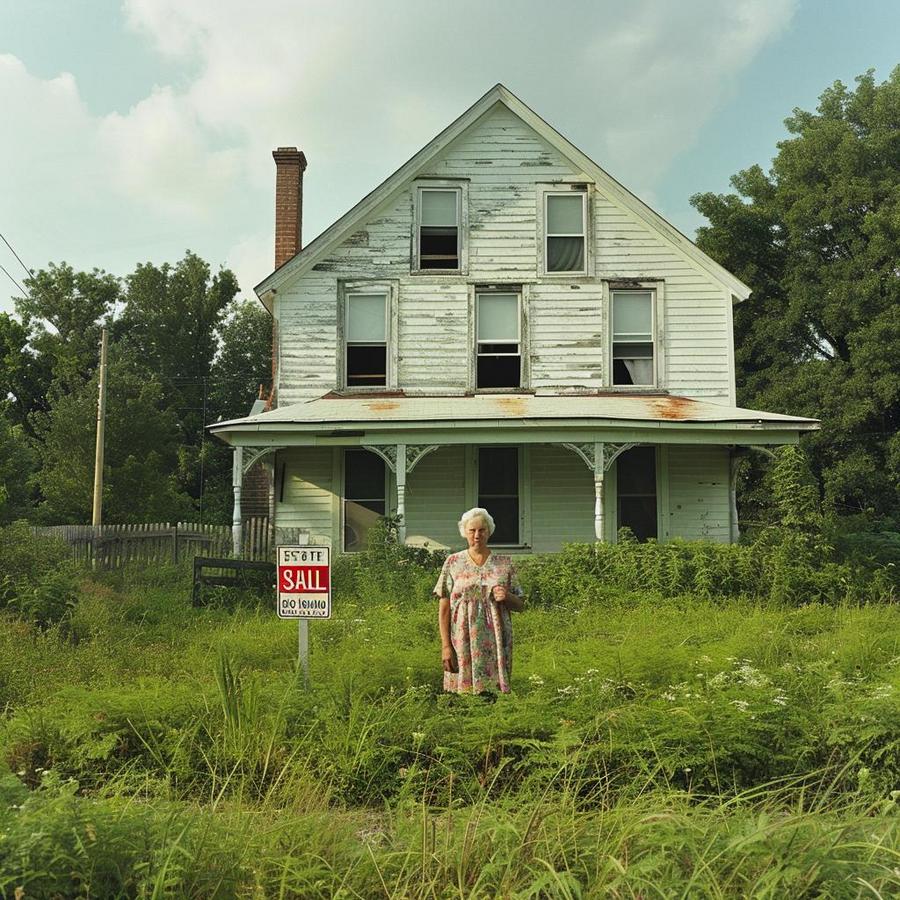Wondering if you can sell your house with a bad septic system? You're not alone. Many face this issue, not knowing their options. This post will guide you through selling your property, even with septic troubles. We'll cover the legal bits, how it affects your sale, and ways to deal with it. Selling a home with a septic problem seems tough, but with the right info, it's doable. Let's dive in.
TL;DR:
- Selling a house with a failed septic system is possible but may require lowering the sale price or offering repair credits due to legal and marketability concerns.
- Local laws vary, so check with state health departments or real estate agents regarding regulations.
- Signs of septic failure include foul odors, soggy yard, and plumbing backups.
- Repair or replacement options depend on cost, damage extent, and feasibility; connecting to a municipal sewer might be an alternative but can be expensive.
- Disclose all septic issues to protect against legal problems post-sale and consider targeting cash buyers or investors for quicker sales.
- Properly preparing your home for sale, including offering repair credits and choosing an experienced real estate agent, can enhance appeal to potential buyers despite septic problems.

What Is a Septic System and How Does It Work?
A septic system treats wastewater from a home. It has two main parts: a septic tank and a drainfield. Let me break it down so it's super clear. The tank is a big container buried in your yard. Dirty water from your house goes into this tank. Here, the solid junk sinks to the bottom, and oil and grease float to the top.
Now, the cleaner water moves to the drainfield. This area has lots of pipes with small holes. The water seeps out through these holes and gets filtered by the soil. This filters out bacteria and viruses too. Learn more about septic systems.
Why does this matter when you sell your house? Well, if your septic system is broken, it can be a big problem. Signs that it's not working include bad smells, soggy ground in your yard, or toilets that don't flush well.
If you want to sell your house with a bad septic system, you might find it tough. Some buyers might not want a house with septic problems. Also, the law in some places says you must fix the septic system before selling. If you can sell your house, you might have to lower your price or offer to fix the septic later. This can help buyers feel better about buying your house.
Can You Sell Your House With a Failed Septic System?
Legal Considerations and Local Laws
Can you sell a house with a failed septic system? Yes, unless local laws say no. Check your state's health department for rules.
Impact on Marketability and Buyer Pool
Expect fewer buyers and a lower price. Homes without working septic systems are less appealing.
Related Links:
–Selling a House that Needs Repairs: A Guide
–How Much Do You Lose Selling A House As-Is?

Recognizing Signs of Septic System Failure
If you smell foul odors or see spongy grass near your septic area, be alert. These could be signs that your septic system is failing. Other clues include water pooling or muddy soil around the septic tank. You might also notice that your sinks and toilets back up often.
These signs point to problems below the surface. Your septic system treats home wastewater and has key parts like a tank and a drainfield. When parts fail, untreated water can't filter through the soil correctly. This is bad for your home and the environment.
If you spot any of these issues, checking the system is vital. A professional can tell you if you can fix it or need a new system. Fixes might include pumping the septic tank or mending a part. But sometimes, the whole system needs replacing, which costs more.
Don't wait if you think there's a problem. Catching signs early can save you money and trouble, especially if you plan to sell your home.
Options for Dealing With a Failed Septic System Before Selling
Repairing vs. Replacing: Cost and Feasibility
Fixing or swapping out your septic system? That's a big question. It boils down to cost and how bad the damage is. Sometimes, it makes more sense to fix parts of your septic system rather than replace the whole setup. For example, small fixes like replacing a broken pipe or a baffle might do the trick. But if the system is too old or too damaged, you might have to go for a full replacement. Replacing a septic system can be pricey. Learn more about costs at HomeAdvisor.
Connecting to Municipal Sewer: Pros and Cons
If you live where you can connect to a city sewer line, think about the benefits and downsides. Hooking up to a municipal sewer can free you from maintaining a septic system. It can also boost your home's value. Yet, it's not cheap. The cost can climb, depending on how far your house is from the main sewer line. Plus, some towns or counties need you to pay a hefty fee to connect. You should check these costs and rules before making a decision.

The Financial Implications of Selling a Home With Septic Issues
Adjusting Sale Price for Septic Problems
Can you sell your house with a failed septic system? Yes, you can. Expect to lower your sale price. Buyers may fear the cost and hassle of repairs. This fear can shrink your buyer pool.
The home's septic system deals with all wastewater. If it fails, this impacts the house's desirability and resale value. Signs like foul odors or water pooling can scare off buyers. You must disclose the septic issues when selling the house.
Most buyers prefer a home with everything working. They'll want a discount if they need to handle repairs, especially big ones.
The True Cost of Septic System Replacement for Sellers
Replacing a septic system is no small task and can cost a lot. The ground must be dug up. Old tanks have to be taken out and new ones put in. Depending on where you live, this job can cost thousands.
Sometimes, it's not just about the tank. The drainfield might need repair too, which adds to the bill. You might think about connecting to the public sewer instead. But, this can be expensive as well.
Selling as-is to cash buyers or investors might seem like a quick fix. They often buy homes in any condition and may not worry as much about septic issues. This can be a faster sale but usually at a lower price.
In all cases, being upfront and clear about the septic problems is key. It keeps you from legal issues later and helps the sale go smoother. Remember, a failed septic system doesn't make a house unsellable. But it does affect how much money ends up in your pocket.
How to Sell a House "As-Is" With a Septic System Problem
Disclosures and Legal Requirements
Yes, you can sell your house with a failed septic system. First, see if your local laws allow it. You'll need to find this info at your state's health department. Expert real estate agents can also help.
When laws say it's okay, tell all buyers about the system's issues. This honesty is called "disclosure." It protects you and informs buyers.
Attracting Cash Buyers and Investors
Failed systems scare many buyers away. So, target cash buyers and investors. They often look for "fixer-upper" homes and don't fear big repairs.
Offer the house at a lower price to attract them. This strategy helps sell faster, even with septic problems. Remember, good planning can turn a tough situation into a successful sale!

Preparing Your Home for Sale Despite Septic Issues
Home Staging and Septic System Disclosures
Can you sell a house with a failed septic system? Yes, you can, unless local laws say no. To find out what local laws say, talk to a real estate agent who knows your area well. They can tell you more about what's allowed.
If selling a house like this is okay in your area, know that fewer buyers might be interested. You might also have to drop your price. A septic system cleans dirty water from your home. It has a tank and an area outside called a drainfield. Signs of a broken septic system include bad smells, wet or mushy grass over the drainfield, standing water, or mud around the system. You might see sinks and toilets backing up too.
Sometimes you can fix septic issues. This might mean cleaning the system, fixing a part called the baffle, or repairing other broken parts. If you can't fix it, or it’s too expensive, you might need a new septic system. This can cost a lot. Another choice might be to connect your house to the city sewer if it's possible, but this can also cost a lot.
You can sell your home "as is" with a realtor or to cash buyers who don’t mind the septic issues. Selling "as is" might lower the price you get. It could also mean your house stays on the market longer. If you choose this route, think about getting your home ready first. Check out these 4 ways to prepare your home for a sale.
Offering Credit for Septic Repairs
When selling your home, you can offer buyers a credit to fix the septic system. This can make your home more attractive. Many buyers like the idea of getting credit because it lets them handle repairs themselves. This can also speed up the sale process.
When offering credit, be clear about how much you're offering and why. This honesty can help build trust with potential buyers. They will know you're upfront about the home’s issues. This approach can help smooth over any worries about the septic system's condition.
The Role of Real Estate Agents in Selling Homes With Septic Problems
Choosing an Experienced Agent Familiar With Septic Issues
Picking the right agent is key. They must know septic issues well. This can help you a lot. They can guide buyers who might worry about the system’s state.
Your agent's knowledge makes a big difference. They should handle septic talks with care. So, choose one who has sold homes like yours before.
Navigating Offers and Negotiations
A good agent should get the best deal on a home with septic troubles. They can help set the price right, considering the failed system. This can attract the right buyers.
The agent also handles tough talks with buyers. They can explain the system's state clearly. This brings trust and a smoother sale process.
After the Sale: What Happens If Septic Issues Are Discovered Post-Purchase?
Legal Protections for Sellers
Yes, you can sell your house with a failed septic system. You must follow your state and local laws, though. Some areas require sellers to fix septic problems before selling. Others do not. Make sure to disclose the septic system's condition. If you don't, you might face legal trouble later. Also, selling your house "as is" protects you. Be clear and honest about the septic issues.
Potential Buyer Recourse
After the sale, a buyer may find out about the septic issue. They could take action if they feel misled. Buyers may ask for a repair or some money back. Some buyers might even take to court. As a seller, be honest about septic problems. This can prevent legal issues after the sale. Remember, happy buyers make for a smooth sale process. Always aim for transparency with potential issues in your home.
We covered a lot about septic systems and selling your house. Key takeaways: knowing how septic systems work is crucial, especially when selling. If yours fails, understand local laws and the market impact. Signs of failure are clear, but options like repair or sewer connection exist. Selling "as-is" might adjust your price, but cash buyers are out there. Prepare your home well and pick an agent who knows septic issues. After the sale, know your legal stance and buyer rights. My final thought? With the right approach, you can sell your home successfully, septic issues or not.











